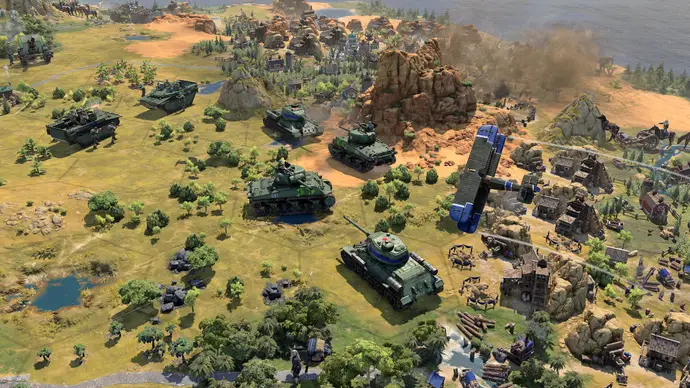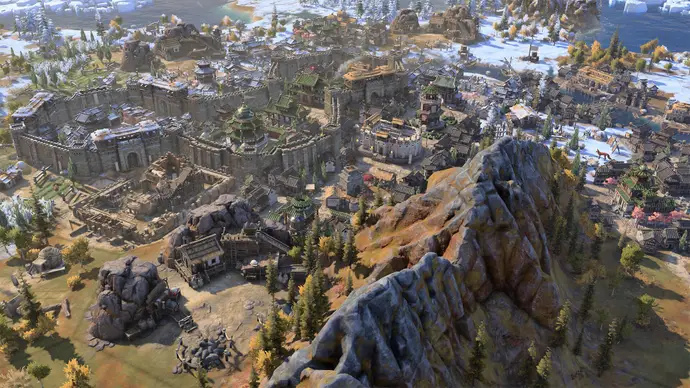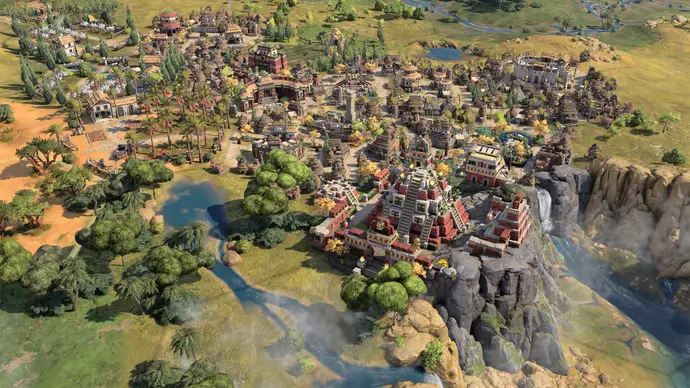A Diablo 4 player thought they found a sneaky deal in the in-game store—only to realize it was a bug. Here’s what happened and how Blizzard handled it.
Civilization 7 changes the game with new era-based progression and evolving civilizations. Is it a worthy successor to Civ 6? Here’s what we think.
Civilization 7 Is Here, and It’s Different—But Is It Better?
The Civilization series has always been about change, but Civilization 7 takes it to a whole new level.
Every Civ game reinvents itself, just like Final Fantasy does, keeping some traditions while experimenting with new mechanics. But every now and then, an entry shakes things up so much that it divides players—Civ 7 is one of those games.
At first, I wasn’t sure if I liked it. The changes felt overwhelming, and I worried that Firaxis had removed too much of what made past games great. But after a few hours, everything clicked. The “one more turn” magic is still here—it just feels different this time around.
Also Read: How to Find and Open Old Booster Packs in Pokémon TCG Pocket

A New Way to Build a Civilization
At its core, Civilization 7 is about guiding a society from ancient times to the modern age. You explore, expand, develop cities, and interact with other nations through diplomacy or war. But how you do that has changed in a big way.
Three Eras, Three Civilizations
Instead of playing one civilization for the entire game, Civ 7 divides the experience into three eras:
- Antiquity (Ancient & Classical Eras)
- Discovery (Medieval to Industrial Era)
- Modern (Modern to Future Era)
At the start of each new era, you pick a new civilization instead of continuing with your original one. For example, you might start as the Romans in Antiquity, then shift to the French in Discovery, and finally America in the Modern era.
This means your civilization is always evolving, just like real history. Even though your previous Civ technically disappears, its culture and influence carry over. So if you started as Rome, your Modern-era Civ might still have traces of Roman influence.
Leaders Are Separate from Civilizations
Past games, leaders are no longer tied to specific civilizations. Your chosen leader stays with you throughout the entire game, even if your Civ changes.
Which means you can have Benjamin Franklin leading Mongolia or Napoleon guiding an industrial empire. Leaders have unique strengths, and their abilities might make them better suited for certain Civs, but the choice is yours.
This system allows for more flexibility, but also means you can end up with some weird historical combos—fun, but a little strange.
Also Read: Warzone’s New Best Assault Rifle? Goblin Mk2 Takes Over the Meta

A Big Change to How the Game Flows
One of the most controversial changes in Civ 7 is the way eras reset the game state.
- Units don’t carry over—your armies are either removed or replaced with modern versions.
- Wars automatically end when an era changes. Any conflicts are settled instantly, bringing temporary peace.
- Cities and culture remain, but the world goes through a soft reset, making each era feel like a fresh start.
At first, this felt like a strange limitation, especially for players who love long-term military strategies. But once I got used to it, I realized it adds a new layer of strategy.
For example: If you’re at war near the end of an era, you might rush to capture a few enemy cities, knowing that peace will be forced when the next era begins. You can then use diplomacy to smooth things over, keeping your gains without facing retaliation.
This change might frustrate hardcore Civ veterans, but it also prevents the late-game from becoming overwhelming, which has been a problem in past games.
Streamlining Without Dumbing Down
Firaxis has clearly simplified some mechanics, but it doesn’t feel like they’ve made the game “casual.” Instead, they’ve shifted the depth to different areas.
Tech Trees & Victory Conditions Are More Structured
The tech and civic trees are now divided into three sections (one per era), making them more focused.
Victory conditions are now tied to quest-like objectives for each era. While you can still win through domination, science, culture, or diplomacy, these quests give clearer goals for players who might struggle with long-term strategy.
For example, instead of having to conquer the entire world for a military victory, fulfilling smaller military objectives throughout the game can still lead to a win.
This approach helps new players stay engaged while allowing veterans to play the way they want.

A Few Drawbacks
While Civilization 7 is exciting, some choices feel questionable.
DLC Strategy Feels a Bit Greedy
Some classic leaders and civilizations are missing from the base game, including Great Britain, Shaka Zulu, and Gandhi.
Firaxis has already announced that Britain will be added as paid DLC in March, which makes it clear that they’re holding back fan-favorites to sell later. While the base game offers a solid selection of Civs and leaders, longtime fans will definitely notice some missing staples.
Era Shifts Can Feel Disruptive
The soft reset between eras changes the way wars work and forces you to rethink your strategy. While this prevents late-game clutter, it might frustrate players who enjoy long-term military campaigns.
AI Can Behave Oddly
The AI still has some quirks, like declaring war just before an era change, which makes their aggression meaningless. Hopefully, future updates will improve this behavior.
Final Verdict: A Bold New Era for Civilization
Review Score: 4.5/5 – Great
| Pros | Cons |
| Unique new era-based progression | Era resets can feel disruptive |
| Customizable civilizations & leaders | Some classic Civs & leaders missing at launch |
| More streamlined but still deep gameplay | AI can behave strangely at times |
| Improved late-game pacing |
Is Civilization 7 Worth It?
If you’re expecting Civilization 7 to be just a better version of Civ 6, think again—this is a major rework of how the game plays.
Some longtime fans might struggle with the era reset system, but once it clicks, it adds a fresh layer of strategy that makes every playthrough feel dynamic.
The core “one more turn” magic is still there, and I found myself getting hooked in a new way.
That said, it’s clear Firaxis is planning to expand the game over time, just like every Civ before it. If you’re worried about missing content, you might want to wait for expansions. But if you’re excited to try a new take on the franchise, Civ 7 is absolutely worth playing.
The foundations are solid, and I can’t wait to see how it evolves over time.
Also Read: Next Battlefield Game: Everything We Know So Far